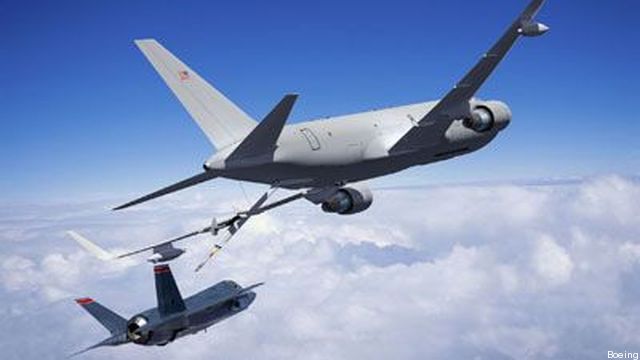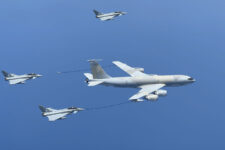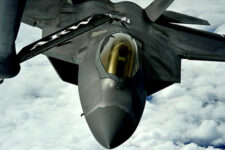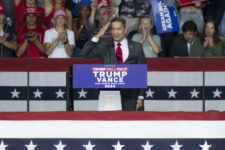If you wanted a clear indicator of just where the Pentagon wants to be in buying weapons for the future, you would do well to pay attention to what Ash Carter, head of Pentagon acquisition, said today about a projected cost overrun faced by the Boeing tanker program.
“It’s not our problem because it’s a fixed contract and it was written with protections for the taxpayer,” Carter told a reporter at the Brookings Institution.
Carter was referring to the projected $300 million cost overrun on the contract for Boeing to produce four tanker aircraft for somewhere between $4.4 billion and $4.9 billion. The possible cost increase was first disclosed during the Paris Air Show.
Carter and other senior Pentagon officials have been at pains over the least 18 months to say they want to see more fixed price contracts awarded for major programs. The prospect of cost overruns from the F-35 program and the F135 engine program — coupled with the seemingly endless cost overruns of most space programs — has clearly convinced the Pentagon it must control costs if it is to maintain a healthy budget in the next five years.
Boeing was at some pains to state it is not yet over budget on the program. “We have a lot of incentives to control costs,” Boeing tanker spokesman Bill Barksdale told me. “Our KC-46 tanker development program is proceeding on cost and on schedule per the contract we were awarded by the Air Force in February,” he said in a prepared statement. He did say that their bid was “aggressive.”
However, he also said — in a clear message to both Capitol Hill and to Boeing shareholders —
that “we expect to make money on this program.”
Carter characterized Boeing’s approach this way: the company has decided to absorb some loss on the EMD contract and make it up on the production side.
Carter also made clear the next-generation bomber program must head on a very different direction from its previous one. The country, he said, cannot afford an “exquisite” plane. His comments echoed those made yesterday by Gen. James “Hoss” Cartwright, vice chairman of the Joint Chiefs.

Air Force pauses deliveries of Boeing’s KC-46 tanker
The decision to pause deliveries was made on Feb. 27 by the service’s KC-46A program office “due to the identification of in the ‘outboard fixed-trailing-edge support structure’” of the two planes, an Air Force spokesperson said.


























